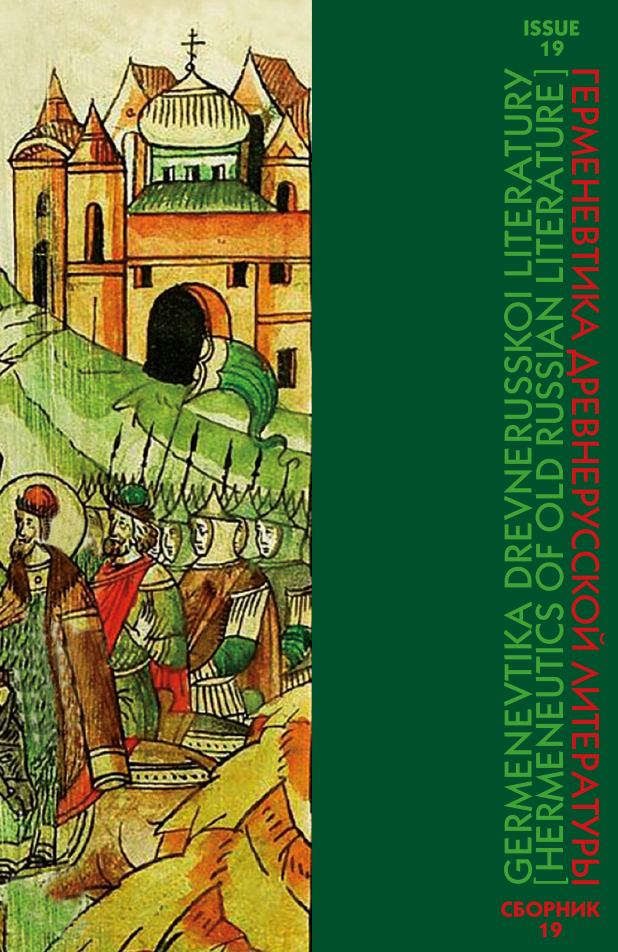Abstract:
The article examines the Russian translation of the novel which is included in the Story of the Seven Wise Men — the story of the third wise mаn which tells about a gullible man, an evil wife and a faithful magpie who speaks Hebrew. In the process of analyzing of some Russian lists we can discover a non- obvious contradiction: apparently, the native language of the hero is Hebrew, but at the end of the story he goes to the Holy Land and becomes a monk. To explain this contradiction we use the European (Latin, French, German, Spanish, Swedish, Danish and Polish) versions of the novel and make a careful assumption that in Russian translation the author used a special narrative manner.
References:
- Adrianova-Peretz, V.P. “Istoriia semi mudretsov” [“The Story of the Seven Wise Men”]. Istoriia russkoi literatury: v 10 t. [History of Russian Literature: in 10 vols.], vol. 2, part 2. Moscow, Leningrad, Izdatel’stvo Akademii nauk SSSR Publ., 1948, pp. 110. (In Russian).
- Artakserksovo deistvo. Pervaia p’esa russkogo teatra XVII veka [Artaxerxes Action. The first Play of the Russian Theater of the 17th Century]. Moscow, Leningrad, Izdatel’stvo Akademii nauk SSSR Publ., 1957. 345 p. (In Russian)
- Belova, O.V. Slavianskii bestiarii: Slovar’ nazvanii i simvoliki [Slavic Bestiary: Dictionary of Names and Symbols]. Moscow, Indrik Publ., 2001. 316 p. (In Russian)
- Zinov’eva, E.I. “Ornitonim ‘soroka’ v russkom iazyke i kul’ture: universal’noe i natsional’no-spetsificheskoe” [“Ornithonym ‘Magpie’ in Russian Language and Culture: Universal and Nationally Specific”]. Mir russkogo slova, no. 4, 2012, pp. 82–86. (In Russian)
- Istorii semi mudretsov, izd. I. Zabelinym [Stories of the Seven Wise Men, ed. I. Zabelin], issue Moscow, Nobel’ Press Publ., 2011. 90 p. (In Russian)
- Odesskii, M.P. “Evrei v doklassitsisticheskoi russkoi drame” [“Jews in Preclassic Russian Drama”]. Jews and Slavs, vol. 13. Anti-Semitism and Philo-Semitism in the Slavic World and Western Europe. Haifa, Jerusalem, 2004, pp. 96–109. (In Russian)
- Odesskii, M.P. “Funktsiia ivrita v ‘Artakserksovom deistve’.” [“The Function of Hebrew in ‘Artaxerxes Action’.”]. Drevniaia Rus’. Voprosy medievistiki, no. 4 (14), 2003, pp. 51–52. (In Russian)
- Pamiatniki literatury Drevnei Rusi. XVII vek. Kn. 1 [Literary Monuments of Old Rus. 17 Century. Book 1]. Moscow, Khudozhestvennaia literatura Publ., 1988. 704 p. (In Russian)
- Pypin, A.N. “O romanakh v starinnoi russkoi literature” [“About Novels in Old Russian Literature”]. Sovremennik, vol. 48, no. 12, 1854, p. 98. (In Russian)






